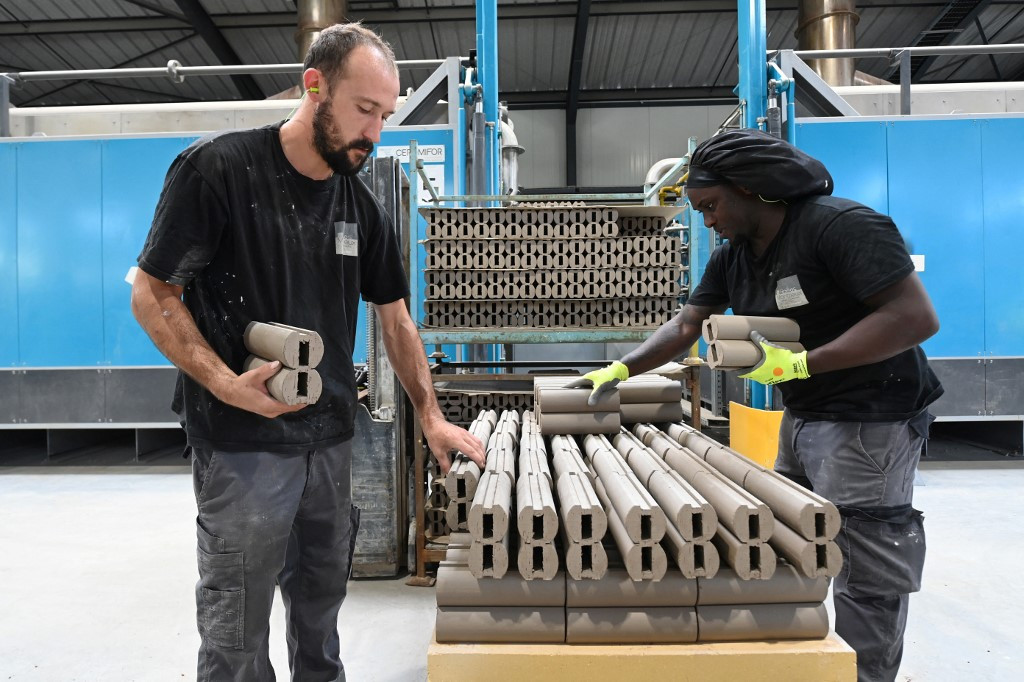Popular Reads
Top Results
Can't find what you're looking for?
View all search resultsPopular Reads
Top Results
Can't find what you're looking for?
View all search resultsEurozone business activity up as new orders grow, PMI shows
The manufacturing sector showed notable improvement as its headline PMI rose to 50.5 from 49.8 in July, moving into expansion territory for the first time in more than three years.
Change text size
Gift Premium Articles
to Anyone
E
urozone businesses saw new orders increase in August, the first time since May 2024, helping overall activity expand at the fastest pace in 15 months despite persistent weakness in exports, a survey said on Thursday.
The HCOB Flash Eurozone Composite Purchasing Managers' Index (PMI) compiled by S&P Global rose to 51.1 in August from 50.9 in July, marking the third consecutive monthly improvement and the highest reading since May last year.
PMI readings above 50.0 indicate growth in activity, while those below point to a contraction.
A Reuters poll had predicted a dip to 50.7.
"Things are getting better. Economic activity has picked up in both manufacturing and services. Overall, we've seen a slight acceleration in growth over the past three months," said Cyrus de la Rubia, chief economist at Hamburg Commercial Bank.
"Despite headwinds like [United States] tariffs and general uncertainty, businesses across the eurozone seem to be coping reasonably well,” he added.
The manufacturing sector showed notable improvement as its headline PMI rose to 50.5 from 49.8 in July, moving into expansion territory for the first time in more than three years. Manufacturing output grew at the quickest rate in nearly three and a half years, with the subindex climbing to 52.3 from 50.6.
Services activity continued to expand but at a reduced pace, with the PMI for the bloc's dominant sector slipping to 50.7 from 51.0 in July.
Germany, a key driver of Europe's economy and the eurozone's largest economy, posted a third successive monthly increase in output on the back of a solid expansion in manufacturing production despite a muted services performance, the survey found.
France's downturn eased to a marginal decline, the smallest in a year, while growth in the rest of the eurozone continued, but softened slightly.
"France, which had been a drag in June and July, showed signs of stabilizing in August. The same goes for services: France's recession seems to be tapering off," de la Rubia said.
The rest of the eurozone continued to register increasing output, albeit at a slighter slower pace than in July.
Firms continued hiring for the sixth consecutive month, with the pace of job creation quickening to the fastest since June 2024. The employment gains were concentrated in services, while manufacturers continued to shed jobs.
Inflation pressures intensified in August, with input costs rising at the sharpest rate in five months. Service sector cost inflation accelerated to the highest since March, while output prices across the bloc increased at the fastest pace in four months.
"The European Central Bank [ECB] might wince a little at the rising cost pressures in the services sector. After all, it’s banking on slower wage growth to help bring inflation down in this crucial part of the economy," said de la Rubia.
"That said, there’s a bit of relief in the fact that inflation in service-sector selling prices has remained more or less steady," he added
ECB policymakers are seen waiting until December if they opt to cut rates one more time, according to a Reuters poll, but there is no longer a majority consensus for where the deposit rate will be by the year-end.










